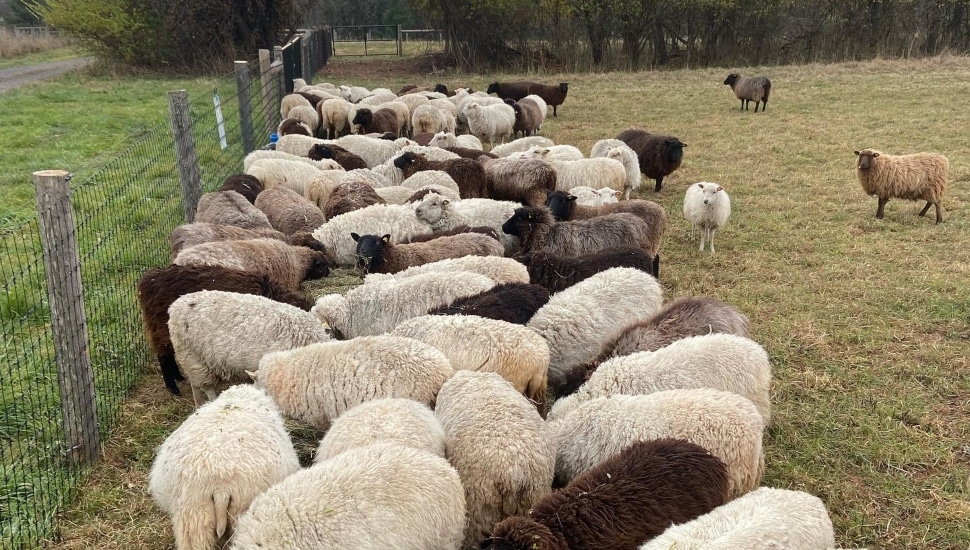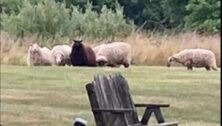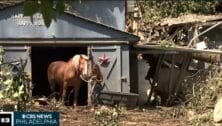Willow Creek Farm Preserve: Fighting Climate Change 220 Sheep at a Time

Willow Creek Farm Preserve in Collegeville is doing its part to combat climate change the old-fashioned way: with sheep, reports Susan Phillips for WHYY.
A typical industrial-sized sheep farm produces a great amount of wool that can be used to make clothing and other textiles. It can also leave a large carbon footprint. Willow Creek Farm Preserve works to reduce their imprint with help from their woolen animals.
“The sheep weed for free, they fertilize for free,” said head shepherdess Melissa Smith. “So we don’t use big mowers and lots of fossil fuels with tractors at a scale that we would have to typically if we weren’t using sheep…”
The 220 Shetland sheep graze on 70 acres of the property, eliminating any danger of polluting local waterways with manure. They are also conscious of overgrazing which can erode and damage the soil. Willow Creek Farm Preserve also has a processing plant which reduces the fossil fuels used to transport raw materials offsite.
Smith says the farm is part of the slow fashion movement. Rather than mix synthetic, cheap materials into their wool, they take the time to produce real wool that can stand the test of time.
“Investing in these slow pieces that can be timeless, but also something that you can have in your wardrobe for many years is something that you can do for yourself and to help climate change.”
Read more about Willow Creek Farm Preserve and the slow fashion movement at WHYY.
______
Join Our Community
Never miss a Delaware County story!
"*" indicates required fields
















![95000-1023_ACJ_BannerAd[1]](https://delco.today/wp-content/uploads/sites/3/2023/03/95000-1023_ACJ_BannerAd1.jpg)













